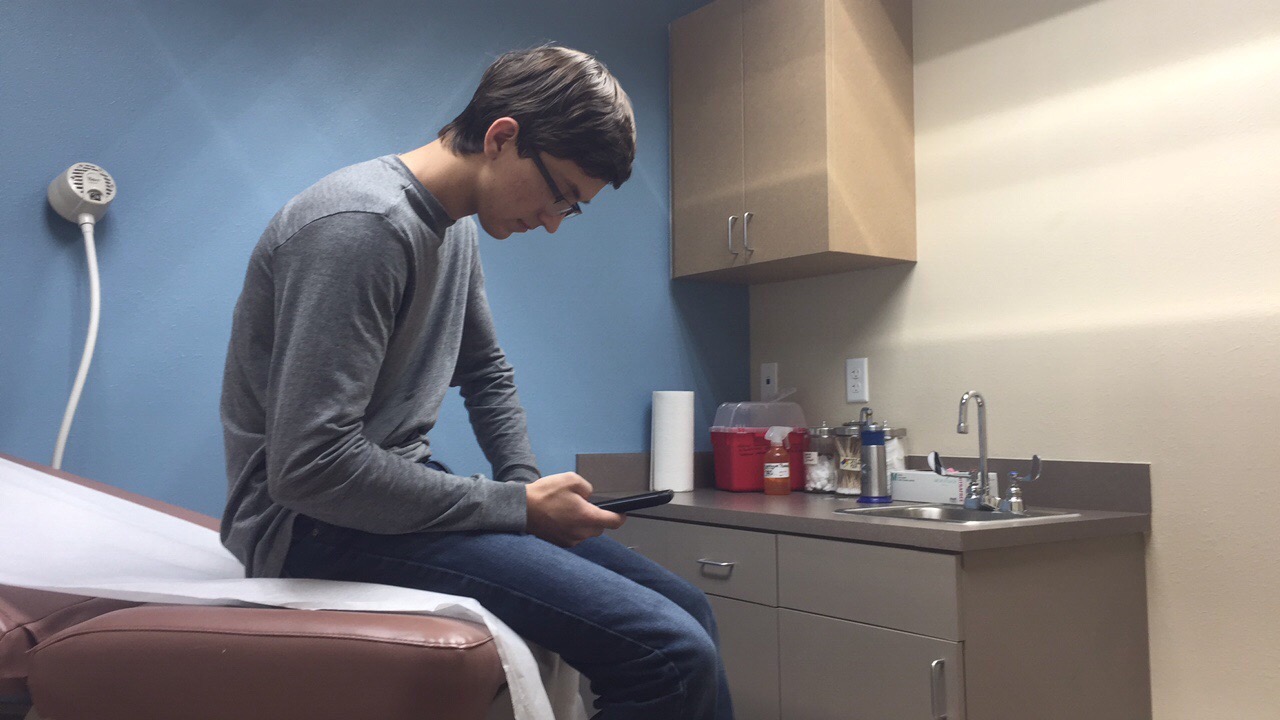Healthcare support at clinics, physicians’ offices, hospitals and other care facilities is vital during a pandemic, and it might be getting some much-needed backup from digital and ‘virtual’ apps.
Right now, the unparalleled COVID-19 crisis is placing heavy strain on healthcare professionals and facilities. To help medical professionals deal with an influx of COVID-19 patients and to decrease chances of spreading the infection, patients with other conditions are deferring ‘elective’ or routine care. In many cases around the U.S., patients are only visiting hospitals or medical offices for severe conditions or life-threatening emergencies.
Staying home as much as possible and social distancing is helping to manage the spread of the coronavirus, but many people may be forgoing necessary care and treatment for serious diseases and conditions. Several hospitals are reporting a drop in patients presenting with common emergencies such as heart attacks and appendicitis.

While these reports could signal very serious problems for an overwhelmed healthcare system, at the moment data is not yet available to understand the full scope of that issue. It still remains crucial that anyone suffering severe symptoms do seek professional medical assistance, regardless of COVID-19.
There’s another group of patients likely not going to the ER with the same frequency before the onset of the coronavirus—patients with digestive disorders. In an average year, there are more than 54 million visits to urgent and emergency healthcare centers for GI disease, according to a 2018 study published in the American Gastroenterological Association journal Gastroenterology. However, with COVID-19 changing the way Americans seek in-person healthcare, it’s highly probable those numbers are dropping.
The good news is technology is available to help people manage several non-emergency healthcare needs, including gastrointestinal issues.
Tech-Enabled Healthcare is Flourishing
It goes by many names—telehealth, telemedicine, virtual healthcare, digital healthcare—but the services provided by technology-enabled health and medical care have great potential for millions of people struggling to maintain wellness while under stay-at-home orders.
Digital health platforms are growing in popularity for a number of chronic health conditions. Many of them are employer or health-plan sponsored programs, meaning they’re provided to employees without added charge. To name just a few:
- Livongo helps people manage conditions including diabetes, weight management and hypertension.
- Hinge Health is designed for people with musculoskeletal issues, especially back and joint pain.
- Lyra’s focus is on managing mental and behavioral health and wellness.
And of course, GIThrive® from Vivante Health is a digital platform for digestive health and disease management. It’s a big issue, too: Almost 60% of the U.S. population deals with GI symptoms each week. Heartburn/indigestion, abdominal cramps and gas, constipation and diarrhea are common complaints. For lots of people, those symptoms often overlap.

People with gut health issues tend to seek a lot of medical care over time. For starters, it can be challenging to diagnose GI disorders so there are often a lot of provider visits and tests. And if symptoms are severe or interfering with everyday life, trips to the doctor or ER can add up.
But with digital platforms, several pieces of the GI symptom-management puzzle can be addressed. Similar to diabetes or joint pain management, diagnosis and treatment plans need to be initiated and monitored by doctors and clinical physicians, but the daily management of symptoms can be helped along with the right app.
Virtual healthcare platforms can also provide a level of personalized care that hospital physicians and even primary care doctors are too short on time to provide. With GIThrive, members can connect to the app for educational resources ranging from nutrition suggestions and tips for managing stress and anxiety through meditation, exercise and healthy habits. There’s a Care Team ready to offer one-on-one support from registered dietitians. Coupled with the Gut Check microbiome testing kit and the brand-new GIMate® breathalyzer device to identify trigger foods, members can get a personalized idea of what foods to avoid (or eat more of) to help ease symptoms and feel better overall.
Right now, many people are dealing with fears and anxiety related to the pandemic. Whether it’s the stress of suddenly working from home, worries about contracting the virus or even finding essentials like toilet paper at the store, there’s a lot to think about right now. “Stress, anxiety and depression magnify symptoms for people with digestive disorders,” says Paul Elsass, Vivante Senior VP of Commerce. “With a program like GIThrive, they can easily work with digestive experts in the comfort of their own homes, with no travel needed.”
The Ever-Evolving Healthcare Horizon
Whether it’s GIThrive or any other digital health platform, all of these tools bridge the gap when it’s not ideal or even possible to access in-person healthcare during the coronavirus pandemic… and beyond. After all, managing chronic health conditions with tech platforms makes sense in 2020.
Telemedicine allows for new efficiencies and faster access to certain types of care, and some of the things we’re learning now during this pandemic will likely lead to changes going forward, according to some experts. As Bob Kocher, MD put it in a recent Fast Company article: “Habits that we form now will grow into preferences and default behaviors, and patients won’t want to return to a pre-COVID-19, less-convenient form of in-person healthcare.”
As companies look to the future, digital health programs can be valuable tools to not only help employees stay on top of chronic conditions and practice self-care, they can help reduce overall healthcare costs. After all, people who manage their symptoms with digital support can potentially cut back on the number of sick days, physician visits, and perhaps even some expensive medications. Financial circumstances have changed quarterly forecasts for most companies going forward into 2020, so if there’s an opportunity to manage healthcare costs, it may make sense to take a look at those options.
Be Smart, Stay Healthy
In these challenging times as we all stay at home, above all we want everyone to make informed decisions regarding healthcare. Digital healthcare can help keep symptoms under control and offer much-needed connection and support with experts, but it is never intended to be a substitution for emergency care.
On behalf of Vivante Health’s team, we hope you, your family and your employees are staying safe and healthy right now, and always.







